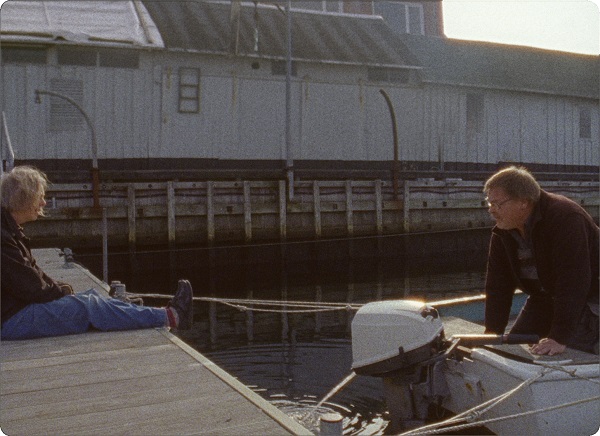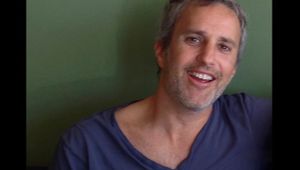
Daniel Borgman: Navigating Ethics, Love and Mortality in an Unscripted Feature

Travelling extensively in search of new stories, New Zealand-born filmmaker, Daniel Borgman, has developed somewhat of a distinct cultural receptiveness that colours his work. His unique ability to capture unconventional narratives and characters with freshness and sensitivity have earned him recognition around the world. His latest feature film At Elske Pia is his second and most recent feature to premiere at Berlinale.
Shot on 16mm, the intriguing unscripted film is set in Denmark and was developed during his residency at the festival in 2015. The film is a work of fiction but is based on the real life of the eponymous Pia. 60-year-old Pia lives with an intellectual disability, cared for by her ageing mother, in the Danish countryside. The film deals with the themes of love and mortality, following Pia as she builds new relationships and plans for a potential future without her mother.
Here, the Robber’s Dog director reveals why he opted for an organic, non-scripted approach and discusses the ethical and creative dilemmas he encountered during the two-and-a-half-year process.
LBB> How did Loving Pia come about? How did you meet Pia and her mother, and why did you choose to create a film about them?
DB> It combined two things I wanted to do: to make a film without a script and to do something out in the countryside with an adult who was taking care of another adult. We were initially really inspired by Vincent Ward’s 1980 documentary, In Spring One Plants Alone, about an elderly Maori woman taking care of her handicapped 40-year-old son. We found Pia through an extensive casting process. My producer Katja and I visited a lot of different people living in this situation, where one was taking care of another. We fell in love with Pia and her mum straight away. They seemed really open and interested in what we were up to, so we just started to shoot with them and followed our noses. We decided on this rule that every obstacle should be used as a positive new direction, and that’s what kept us moving forward.
LBB> Your films often revolve around outsiders. Being a New Zealander in a foreign country, do you feel that your international background gives you an outsider perspective that informs your work?
DB> I think that the experience of coming of age as an adult somewhere other than place I was born and brought up has made me into a kind of cultural explorer. Even at home I feel slightly outside, so I think I approach all cultures from a bit of a distance. Filmmaking has become a way for me to negotiate that distance.
LBB> Shot on 16mm with a unique aspect ratio, Loving Pia has quite a distinct look. It also has a stripped-back aesthetic, having only been shot with natural lighting. What was the thinking behind these decisions, and do you think you’ll revisit these techniques in your future projects?
DB> Everything we did on the film was part of an organic process that happened simultaneously. There were many factors behind the decisions we made, but for me, turning away from artificial lighting and a big crew was really part of our desire to be closer to the subject we were working with, and to move towards something that’s hopefully a bit more honest.
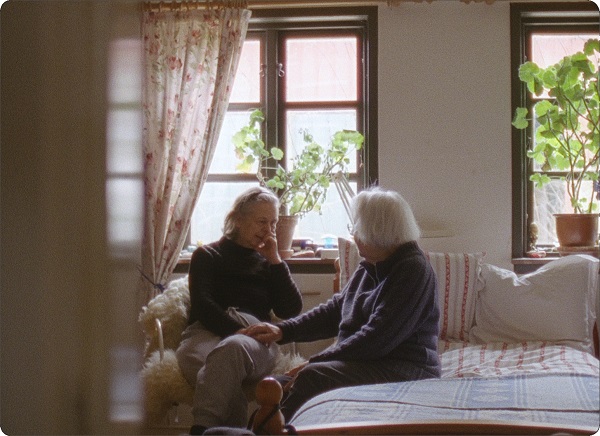
LBB> You were one of three directors invited to be in residence at Berlinale, and you travelled between Berlin and Denmark to shoot Loving Pia during this period. What impact did this residency have on the making of the film?
DB> The residency was amazing. I was given the guidance of a great script supervisor called Franz Rodenkirchen. I’d go to Denmark and shoot for a few days and then return to Berlin, where I would edit the material and show it to Franz. We would discuss the themes, characters, and different directions that the story could take. It was really nice experience.
LBB> It sounds like Loving Pia involved quite a tight crew, mainly helmed by yourself and producer, Katja. What creative freedoms and challenges did this set-up allow?
DB> Working with a small crew gave us the flexibility to go at our own pace and change things as we went. The process was so free. I thought that involving a lot of people (in what is a vulnerable and sensitive situation) would not be the right approach.
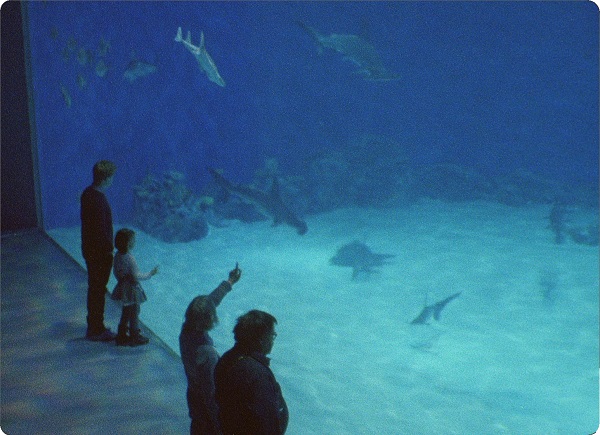
LBB> You mentioned that while Loving Pia involved some devised scenes, it was completely unscripted. How did the improvised aspect impact your role as director, and did it result in any surprises that changed the course of the film’s narrative?
DB> Yeah, there were lots of surprises, but by the end we realised that that was actually the key. We shot so much material over two and a half years and a lot of scenes didn’t make the cut. Quite often, I would suggest a frame for a scene with some performance inputs, and then just roll the camera and let things play out. Sometimes, we would get gold and other times it wouldn’t work at all. We just set ourselves up to capture the right kind of chance.
LBB> On-screen representations of people with disabilities tend to fall into two categories - inspirational sentimentality or tragic fatalism, with a lack of narratives showing disabled people leading their everyday lives. Was this a conversation you were conscious of whilst making this film?
DB> Definitely. I was determined not to make something saccharine or something that would fall into these taboo tropes. We just decided to treat her like a regular person, focusing on her character rather than her disability to let her essence shine through. We spent a lot of time with her, so in the end we were more like friends. Everyone involved - the cast and the crew - had our own issues or things that hold us back; Pia’s disability was just an extension of her character.
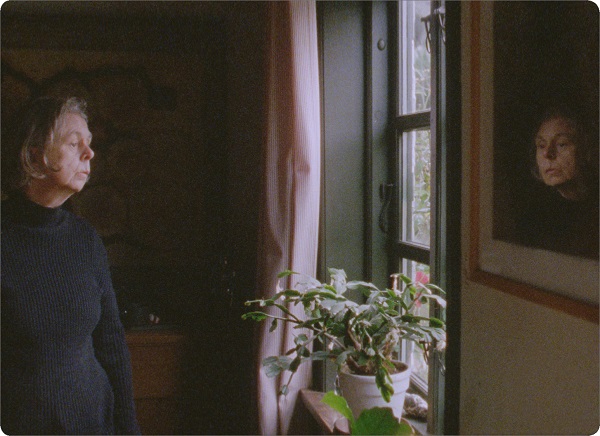
LBB> Did documenting Pia’s intellectual disability bring up any questions of ethics?
DB> Heaps. Katja and I talked constantly about this, as did the financers and the people in Pia’s community, her family, and her support people. In the end, it was about doing what felt right, and ultimately making sure that it was good for Pia. At the same time, we had to recognise that it’s not for us to decide what is good for her. It’s complicated but I feel like, if anything, we have managed to add to the ethical conversation surrounding the involvement of the intellectually disabled in the ‘able’ world. It’s also about challenging the ‘able’ worldview.
LBB> Are there any upcoming projects you’re particularly excited about?
DB> Yes! I have one project that’s slowly coming to life, which deals with solo parenting and hardship, and another which is a period film about masculine relationships.
LBB> You’ve covered New Zealand, Denmark, Kazakhstan, and Germany for your filmmaking. Where next?
Possibly the Pacific Islands, Greenland, and just maybe the former Danish colonies in the West Indies.
